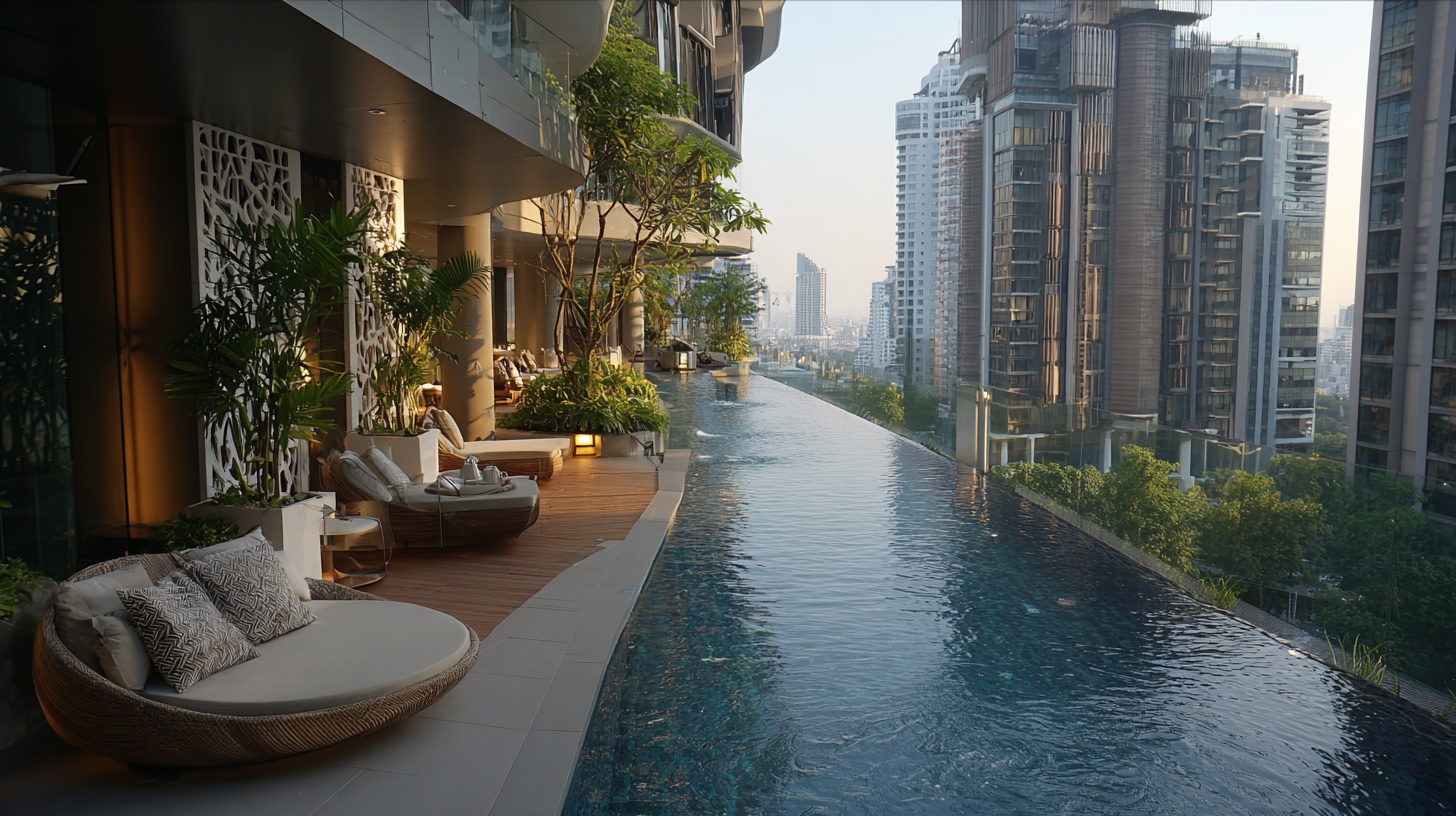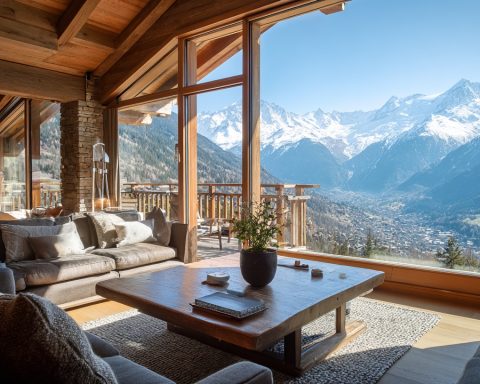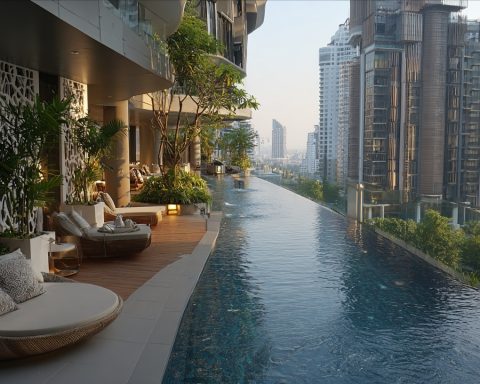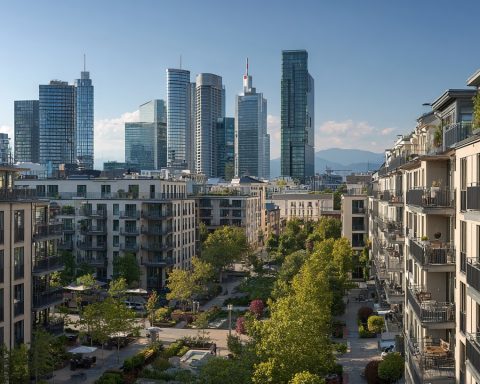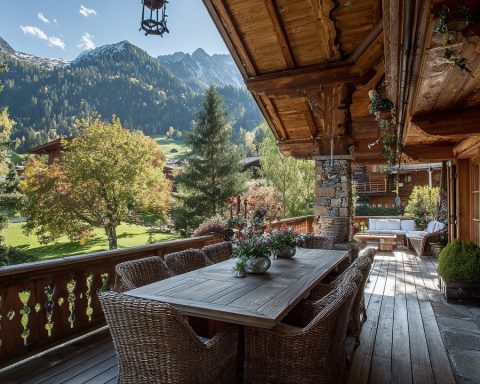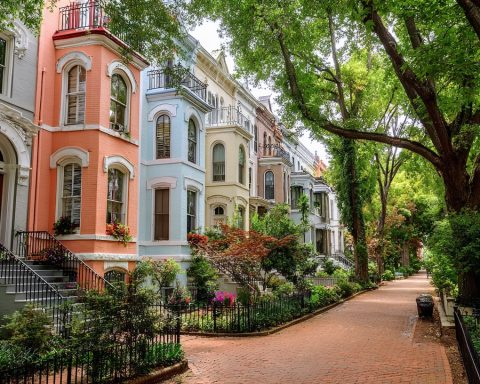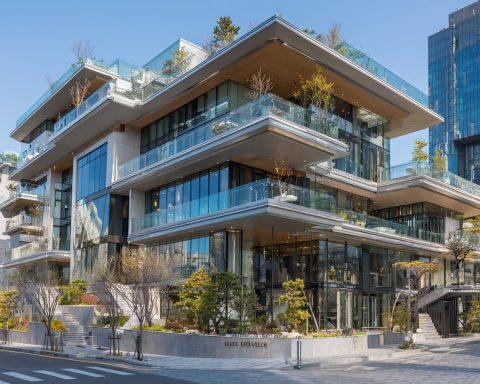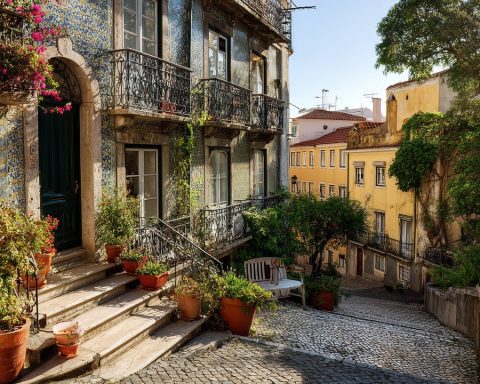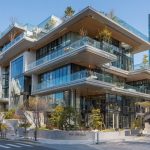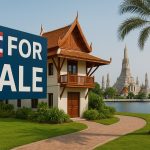Overview of Bangkok’s 2025 Property Market Landscape
Bangkok’s real estate market in 2025 reflects a mixed recovery. The residential sector remains subdued as developers and buyers face financing constraints, limiting new project launches and sales cbre.com. In contrast, the hospitality and retail segments are rebounding on the back of a tourism resurgence, with hotel occupancies and mall traffic approaching pre-pandemic highs cbre.com. The office market is grappling with oversupply as an unprecedented wave of new, high-quality supply enters a market with tepid demand cbre.com. Overall, 2025 presents a “buyer’s market” in many segments – particularly mass-market condominiums – even as ultra-luxury properties and well-located projects show resilience. The government has stepped in with stimulus measures (e.g. tax and fee cuts) to bolster the sector, while also exploring regulatory changes to attract foreign investment. The following sections detail the key trends by property type, price movements across districts, major development projects, policy changes, and a market outlook for the next 3–5 years.
Residential Real Estate Trends in 2025 (Bangkok)
Sluggish Demand and Oversupply: Bangkok’s residential market is well-developed but cooling. Condominium oversupply is a notable challenge – despite a surge of 9,800 new condo units launched in Q4 2024 (a 360% jump QoQ), sales volumes rose less than 10%, keeping the sales rate at a weak ~35% austchamthailand.com austchamthailand.com. Developers have scaled back new launches in 2025 due to high inventory and weaker purchasing power, with only a handful of new condo projects expected this year austchamthailand.com. Many unsold units are being reintroduced at discounted prices, tipping the condo market in buyers’ favor austchamthailand.com. Major firms are even deferring Bangkok launches or shifting focus to low-rise housing and other provinces (e.g. Phuket), given the condo glut.
Domestic-Driven Market: Local Thai buyers remain the primary driver of residential sales in Bangkok cbre.com. However, household debt and tighter credit are dampening demand – the mortgage rejection rate has soared to ~35% (versus a normal 15–20%), especially for lower-priced homes globalpropertyguide.com. This credit tightening, alongside persistently high interest rates (average mortgage MRR ~7.9% in early 2025 globalpropertyguide.com), means many young or first-time buyers are postponing purchases. Developers have responded by aligning new offerings to actual purchasing power – for instance, focusing on units ≤ THB 7 million (the price segment benefiting from fee waivers) globalpropertyguide.com.
Low-Rise and Luxury Resilience: By contrast, low-rise housing (detached houses, townhomes) in mid-to-upper price ranges continues to see relatively healthy demand. Properties in the THB 10–40 million range have been selling well, though increased competition even in this segment has turned it into a “buyer’s market” with more choices and deals for consumers austchamthailand.com. The luxury and ultra-luxury condo segment (prime units > THB 200k–300k per sq.m.) remains a bright spot. Supply in this top tier held steady in 2024 (around 6,500 “Super Prime” and 7,200 “Prime” units citywide) and achieved 80%+ sales rates, indicating sustained interest from high-net-worth buyers austchamthailand.com austchamthailand.com. Luxury projects in prestigious areas (Ploenchit, Chidlom, Ratchadamri, Sathorn, Riverside, etc.) continue to launch and often sell strongly austchamthailand.com. In fact, the luxury market is booming – in H2 2023, 90% of homes priced THB 70–99 million sold quickly, driven by wealthy Asian buyers and foreigners, underscoring robust demand at the high end bambooroutes.com.
Rental Market Uptick: With many would-be buyers on the sidelines, the rental market for condos and apartments has picked up. An influx of expatriates (Bangkok’s expat population grew ~7.1% in 2024) austchamthailand.com and the revival of tourism-driven employment is fueling demand for rental accommodations. Expatriates from China, the Philippines, and Japan form the largest groups, which has bolstered leasing demand in central areas austchamthailand.com. Prime residential rents in Bangkok have climbed – Grade A apartment rents rose ~8.8% YoY by late 2024 globalpropertyguide.com, with some high-end neighborhoods seeing rent spikes of ~15–16% YoY due to limited new supply and returning foreign tenants globalpropertyguide.com. This rental upswing is beginning to attract investors back to buy-to-let condos in key locations, aiming to capitalize on improved yields. Additionally, the post-pandemic tourism boom has supercharged the short-term rental market – Bangkok was the world’s top travel city in 2024 (32.4 million visitors), and Airbnb bookings have surged, lifting returns for owners who lease to tourists bambooroutes.com bambooroutes.com. Investors renting out units short-term are seeing higher yields amid this trend (though they must navigate Thailand’s legal restrictions on rentals under 30 days).
Price Trends: Overall price growth in Bangkok’s housing market has been modest. The Bank of Thailand’s House Price Index for the capital shows single detached house prices up only +2.4% year-on-year in Q4 2024 (about +1.4% in real terms), and townhouses up +3.2% globalpropertyguide.com. Condominium prices have essentially stagnated – annual condo price growth in Bangkok decelerated to just +2.46% in late 2024 (down sharply from +7.2% earlier in the year) globalpropertyguide.com. This plateau reflects developers keeping prices flat to clear inventory globalpropertyguide.com. Industry experts predict only mild price rises in 2025, on the order of 2–3% for housing generally globalpropertyguide.com. Some analysts are slightly more bullish, seeing potential 5–7% price increases if excess supply is sold off globalpropertyguide.com. In short, buyers in 2025 have the advantage of steady prices and abundant choices, especially in the mid-range condo segment.
Commercial Real Estate: Office and Retail Trends
Office Market – Flight to Quality amid Oversupply: Bangkok’s office sector is undergoing a supply-driven shakeup. Total office stock surpassed 6.3 million m² in 2024 after several large completions (e.g. Supalai Icon Sathorn, etc.), and it’s on track to expand further with ~316,000 m² of new space due in 2025 realestateasia.com. This surge in supply far exceeds current demand growth, leading to rising vacancies and intense competition among landlords austchamthailand.com. Occupied office space grew only ~2.2% last year versus a 4% expansion in supply, keeping the market firmly a “tenant’s market” austchamthailand.com. Companies now have abundant choice and bargaining power – many are relocating to newly built Grade A towers (often with green building certifications and modern amenities) and downsizing or consolidating space as they adopt hybrid work models. This “flight to quality” means older or lower-grade buildings are struggling to retain tenants austchamthailand.com.
Monthly rents for premium offices have shown only a slight uptick (~+3.3% in 2024) and remain below peak levels austchamthailand.com. In prime CBD areas (Silom, Sathorn, Sukhumvit), Grade A offices command THB 900–1,600/sq.m. per month, whereas non-CBD zones (Rama 9, new CBD fringe) are below THB 1,000/sq.m. austchamthailand.com. To lure occupiers, landlords continue to offer generous incentives – rent-free periods and discounts of 10–25% are common austchamthailand.com. New supply pipeline: Notably, about 60% of upcoming office projects are concentrated in central Bangkok, including iconic mixed-use developments. For example, One Bangkok, a massive new district on Rama IV Road, opened its first office tower in 2024 and will add multiple premium office towers through 2025–2026 khaosodenglish.com khaosodenglish.com. Similarly, “Dusit Central Park” will deliver a new Grade A office tower in 2025 opposite Lumpini Park. These projects are raising the bar for office quality but also delaying market equilibrium – experts predict Bangkok’s office glut may take at least five years to absorb, with a healthier balance only after 2027 once the construction wave subsides austchamthailand.com. In the meantime, owners of older offices are pressed to refurbish and enhance building quality (e.g. sustainability and tech features) to stay competitive austchamthailand.com.
Retail & Mixed-Use – A Dynamic Recovery: Bangkok’s retail real estate has bounced back vigorously thanks to domestic spending and a revival of international tourism. Prime shopping malls in downtown areas are thriving by reinventing themselves as lifestyle destinations – many have refreshed their offerings to entice high-spending foreign tourists and affluent locals cbre.com. Retail sales and footfall in major malls have improved significantly in 2024, and the momentum carries into 2025. Developers are confident enough that new malls and retail complexes are steadily coming online across the metropolitan area cbre.com. In fact, a pipeline of modern enclosed malls is slated to open over the next few years in various Bangkok districts cbre.com. Examples include the retail components of One Bangkok (with 180,000 m² of retail GFA planned) and Dusit Central Park’s high-end shopping center, both aiming to set new benchmarks for upscale retail experiences.
Large mixed-use projects are a defining trend – these integrate retail, entertainment, office, and residential/hospitality in one place. Such developments (e.g. One Bangkok, Dusit Central Park, The Forestias, etc.) are attracting significant interest due to the convenience and “city within a city” lifestyle they offer austchamthailand.com. Retailers, in turn, benefit from built-in foot traffic from offices, hotels, and residences. While e-commerce grew in recent years, Bangkokians’ mall culture remains strong; experiential retail and F&B draw shoppers offline. Overall, retail rents in prime locations have held steady or risen slightly as vacancy tightens in top-tier malls (some popular downtown malls reportedly have waiting lists for tenants). Secondary retail locations, however, must work harder to fill space and may offer flexible leases to new tenants.
Hospitality Boost: It’s also worth noting the hospitality real estate segment (hotels, serviced apartments) is booming again. Thailand welcomed a surge of tourists – 35.5 million international arrivals in 2024 austchamthailand.com – nearly back to 2019’s record. Bangkok, as a gateway city, enjoyed hotel occupancy and revenue-per-room hitting multi-year highs in late 2024 cbre.com. In 2025, arrivals are expected to increase further, potentially reaching pre-pandemic peaks cbre.com. This has spurred confidence in new hotel openings: for instance, within One Bangkok the Ritz-Carlton Bangkok opened Nov 2024 and an Andaz hotel is set to open in 2025 khaosodenglish.com. Overall, a tourism-driven upswing in hotels and short-stay apartments is improving investor sentiment in hospitality properties and could translate into higher redevelopment or conversion of certain buildings for hotel use, especially in central areas.
Key Price Trends by Property Type and District
Condo vs House Price Trajectories: As of 2025, price growth is highly segmented by property type and location. Broadly, single-family homes and townhomes in Bangkok still see gentle price inflation (low-single-digit % annually), while condominiums are seeing flat to very modest appreciation after the 2020–2022 downcycle. According to Bank of Thailand data, in Q4 2024 Bangkok’s detached house index was up +2.41% YoY and townhouse index up +3.19% YoY globalpropertyguide.com. Condominium prices in the capital rose only +2.46% YoY – barely above inflation – reflecting the notable cooldown in that segment globalpropertyguide.com. Market analysts note that developers are refraining from any price hikes on existing condo stock, instead offering promotions to move units globalpropertyguide.com. It’s expected that 2025 will see only minor price upticks (if any) for condos until the excess inventory is absorbed globalpropertyguide.com. In fact, some mid-range projects may see effective price declines once discounts are factored in. On the other hand, landed housing (which targets end-user families) has limited unsold stock and firmer pricing power, so those values should creep upward in line with land costs – especially in suburban Bangkok where new gated communities remain popular globalpropertyguide.com.
Price by Location: Bangkok’s property values vary dramatically by district. In the Central Business District (CBD) – areas like Lumphini, Sukhumvit, Silom/Sathorn – land prices and condo prices are the highest. As of late 2024, the average selling price for new condominiums in the CBD is around THB 236,000 per square meter austchamthailand.com. Prime luxury projects in Ploenchit/Chidlom or along the Chao Phraya River often exceed THB 300,000–350,000 per sq.m., particularly for larger units that cater to ultra-rich buyers austchamthailand.com. In contrast, suburban condos along mass-transit lines (mid-tier neighborhoods a bit further out, but near BTS/MRT stations) average roughly THB 127,000 per sq.m. austchamthailand.com. In more outer Bangkok zones (peripheral areas not yet well-served by rail), new condo prices drop to roughly THB 70,000–80,000 per sq.m. or less austchamthailand.com. These disparities underscore how transit and location drive value: projects with direct BTS/MRT access or in trendy downtown locales command steep premiums, while those in developing outskirts compete heavily on affordability.
This pattern is also seen in apartment rents. For instance, average asking rents for a standard 2-bedroom unit in central Bangkok are about USD $1,588 (≈THB 55,000) per month, whereas in outer provinces like Nonthaburi or Samut Prakan (suburban Bangkok) a similar unit might rent for barely one-third of that globalpropertyguide.com. Yields tend to be slightly higher on cheaper outskirts properties (3–4% gross yields) compared to pricey downtown assets (~3% or below), as indicated by nationwide data. Despite lower yields, investors still favor central Bangkok for its superior long-term capital appreciation prospects and liquidity.
District Hotspots: In 2025, sought-after districts include Pathumwan/Lumphini (CBD core), Sukhumvit center (Asok to Thonglor stretch), Sathorn and Riverside – all favored for luxury condos and expatriate rentals. New high-end supply in these zones is often met with strong demand. Meanwhile, growth is also notable in emerging business districts like Rama 9 and Bangna: these areas have seen substantial infrastructure investment and now host large projects (e.g. new offices, megamalls) that push property values upward from a lower base. In suburban zones, the completion of new transit lines is an important factor. For example, the opening of the MRT Yellow Line and Pink Line (monorails) in 2023, connecting Lat Phrao to Samrong and Min Buri to Nonthaburi respectively, has boosted real estate interest along those routes. Indeed, 45% of new condo supply in late 2024 was in suburban locations along mass transit, reflecting developers’ bets on transit-oriented development austchamthailand.com. As the mass transit map expands, expect property prices in newly connected districts (e.g. along the upcoming Orange Line east, or future Purple Line extension) to appreciate, narrowing the gap with inner-city prices.
At the same time, land prices in Bangkok have flattened recently. After years of steep climbs, the Land Price Index is seeing slower growth due to developers’ cautious land acquisitions amid the market lull bangkokpost.com. Some indexes even dipped slightly in late 2024 as major developers delayed projects, effectively putting downward pressure on land price escalation bangkokpost.com. However, truly prime land in central Bangkok remains exceptionally scarce and still trades at record-breaking prices per square wah when it does change hands.
Major New Developments and Infrastructure Projects
Bangkok in 2025 is witnessing transformative investments in both real estate developments and infrastructure, which will shape the market in coming years.
- One Bangkok: Touted as “Thailand’s most ambitious” integrated development, One Bangkok is a US$3.9 billion mixed-use district on a 41-acre site in the CBD khaosodenglish.com en.wikipedia.org. It officially launched in October 2024 with great fanfare, signaling confidence in Bangkok’s future khaosodenglish.com. When fully built out (2024–2030), One Bangkok will comprise five Grade A office towers, luxury hotels (Ritz-Carlton opened 2024, Andaz opening 2025), high-end residences, and extensive retail and cultural space khaosodenglish.com khaosodenglish.com. The project creates a new business hub along Rama IV Road, coming with modern infrastructure (e.g. its own district cooling, smart city tech, etc.) and direct MRT access en.wikipedia.org en.wikipedia.org. Already, numerous multinational firms have pre-leased offices here, and the presence of One Bangkok is expected to uplift property values in the surrounding area while adding 1.83 million m² of commercial space to the city en.wikipedia.org en.wikipedia.org.
- Dusit Central Park: Due to complete by late 2025, this is another landmark mixed-use development, rising on the site of the former Dusit Thani Hotel at Silom-Rama IV corner (opposite Lumpini Park). Spanning ~440,000 m² of floor area over 23 acres richmonts.com expatliving.net, Dusit Central Park will feature a new 5-star Dusit Thani hotel, two luxury branded residence towers (69-storeys high with park views), a grade A office tower, and an upscale shopping mall, all linked by a 11,200 m² “Central Park” sky garden expatliving.net expatliving.net. The complex will have direct access to both BTS Skytrain and MRT networks at Sala Daeng – Silom, exemplifying transit-integrated design expatliving.net. As a collaboration between Dusit International and Central Group, this project blends hospitality heritage with modern retail. Its completion will add new luxury housing supply (over 400 high-end units) and significant office/retail space in one of Bangkok’s most coveted locales, further cementing the Silom-Sathon-Rama IV corridor as an extension of the CBD.
- Transit Infrastructure: The government’s ongoing investments in transportation are a major tailwind for real estate. In 2023–2024, Bangkok saw the opening of the Pink and Yellow monorail lines, greatly improving connectivity to northern and eastern suburban areas (Min Buri, Ramkhamhaeng, Lat Phrao, Samut Prakan). By 2025, work progresses on the MRT Orange Line (east-west) which will link the east suburbs through the city center when finished, and on the Purple Line south extension to link Nonthaburi through downtown. A massive national rail plan is also underway: the Thai-Chinese high-speed rail from Bangkok to Nong Khai (connecting to Laos/China) is under construction, and another high-speed line to Rayong (via U-Tapao Airport in the Eastern Economic Corridor) has broken ground. These projects, alongside new expressways (e.g. the Chalong Rat Expressway extension, Outer Ring Road M9), promise to expand Bangkok’s commuter belt and unlock new development zones thailand.go.th thailand.go.th. Improved infrastructure tends to drive suburban housing booms – for instance, stations along new rail lines often become hotspots for condo and mixed-use projects targeting commuters.
- Urban Renewal and Others: Several urban districts are being revitalized. The area around the new Bang Sue Grand Station (Krung Thep Aphiwat Central Terminal) – Thailand’s mega railway hub opened in 2021 – is slated for mixed-use redevelopment, including offices and residential, to capitalize on its role as a future transport nexus. Large public-private projects like the redevelopment of the Port Authority land at Khlong Toei, or the creation of the “Bangkok Arena” (a planned sports and events complex), are in discussion, which could further influence real estate in those vicinities. Additionally, Bangkok’s city planning revisions (the latest master plan update took effect 2022–2023) encourage more high-density and mixed-use development along transit corridors while promoting green spaces. This regulatory push aligns with market trends of integrated developments.
Overall, these major projects reflect confidence in Bangkok’s growth. They will create new commercial nodes, add thousands of residential units, and likely shift some demand across locations (for example, new prime offices drawing tenants from older buildings, or new mall openings affecting retail footfall distribution). For investors and stakeholders, being aware of where new infrastructure and mega-projects are coming online is key to identifying the next property hotspots.
Government Policies and Regulations Affecting Real Estate
Fiscal Stimulus Measures: To shore up the property market, Thai authorities have introduced several supportive measures. A notable policy is the reduction of transfer and mortgage registration fees to only 0.01% (from the usual 2% and 1%, respectively) for homes priced up to THB 7 million globalpropertyguide.com tilleke.com. This incentive, aimed at middle-class homebuyers, was in effect through 2024 and has been extended through mid-2026 tilleke.com. It significantly lowers upfront transaction costs (saving buyers up to ~THB 140,000 on a THB 7M home) and has helped stimulate housing transfers, especially in the affordable segment globalpropertyguide.com. However, it applies only when the buyer is a Thai national tilleke.com. Additionally, the government approved higher tax deductions on home loan interest and special mortgage programs for low-income buyers, to improve housing affordability reuters.com. These measures, collectively, are expected to contribute nearly 1.8 percentage points to GDP growth in 2025 by reviving real estate activity reuters.com.
Monetary Policy Context: The Bank of Thailand began easing monetary policy in late 2024 – after a series of rate hikes, the policy rate was cut 25 bps to 2.25% in Oct 2024 globalpropertyguide.com. Commercial banks’ reference mortgage rates have inched down slightly (average MRR ~7.91% in Jan 2025, down from 8.05% a year prior) globalpropertyguide.com. While still relatively high, the stabilization and slight fall in interest rates relieve some pressure on homebuyers with variable-rate loans. The central bank has also maintained stricter loan-to-value (LTV) limits instituted a few years ago (no renewed relaxation yet), which continues to cap high-leverage borrowing for second-home purchases – a factor that cools speculative buying. Real estate leaders have lobbied for temporary LTV relaxation to boost sales, but so far authorities prioritize financial stability amid Thailand’s high household debt.
Land and Property Taxation: Thailand implemented a new Land and Building Tax in recent years (effective 2020), replacing the old house and land tax. This annual tax imposes levies on property ownership (with different rates for residential, commercial, and undeveloped land). For most owner-occupied homes under certain value thresholds, the tax is minimal or exempt, but for expensive residences and secondary homes, as well as for commercial property owners, it has introduced a holding cost. In 2020–2022 the government gave temporary reductions on these taxes as COVID relief, but by 2023 normal rates resumed. The effect is that investors and developers face higher carrying costs for land banking and unsold inventory, which discourages land hoarding and pushes developers to utilize land or divest idle plots. Indeed, the land price stagnation mentioned earlier is partly due to developers becoming more selective and not overpaying for land when annual taxes are a consideration.
Development Regulations: Zoning and building regulations in Bangkok continue to evolve. The latest city plan encourages mixed-use and higher density near transit stations, offering bonus floor area ratio (FAR) for projects that provide public benefits (such as open space or connectivity to transit). This is spurring some creative new projects and aligning with the trend of large mixed-use complexes. At the same time, environmental and community impact assessments are enforced more rigorously for big developments, occasionally delaying project approvals. The city is also promoting sustainable building practices (e.g. incentives for green roofs, energy-efficient design) which affect construction costs but improve long-term value.
Foreign Ownership Rules: Perhaps the most significant regulatory changes under consideration are those concerning foreign property ownership (covered in the next section). In summary, the government in 2024 revisited proposals to relax rules for foreign buyers – a move with broad implications for Bangkok’s high-end condo market. This is discussed in detail below.
Foreign Ownership Rules and Implications for Investors
Thailand has traditionally maintained strict property ownership limits for foreigners, but 2024–2025 marks a potential turning point as the government seeks to attract more foreign investment into real estate:
- Current Rules: Foreigners cannot own land freehold in Thailand (except in rare industrial cases or through complicated structures). They can, however, own condominium units freehold up to 49% of a building’s total area. This 49% foreign quota per condo building is a longstanding rule under the Condominium Act. Foreigners can also take long leaseholds on properties (typically 30-year lease terms), and those lease rights can be registered to provide security of tenure (often with clauses for renewal). In practice, most foreign investors in Bangkok opt to buy condos within the allowed quota or sign 30-year leases for high-end apartments or houses, since direct land purchase is off-limits.
- 2024 Proposed Easing: The new administration (led by Prime Minister Srettha Thavisin, himself a former property developer) moved to liberalize foreign ownership to stimulate demand. In mid-2024 the Thai Cabinet tasked the Interior Ministry to study extending residential leaseholds from 30 up to 50–99 years and raising the foreign condo ownership quota from 49% to 75% globalpropertyguide.com globalpropertyguide.com. By late 2024, a decision was made to proceed with these changes: the quota for foreign freehold in new condominium projects would increase to 75% and maximum lease terms would lengthen to 99 years (effectively giving foreign buyers nearly a freehold-like tenure) lundgreensinvestorinsights.com. Additionally, officials hinted at allowing foreigners to buy certain types of housing (e.g. possibly permitting foreign freehold ownership of land for one house under specific investment conditions) reuters.com. This latter idea – letting wealthy foreigners own a small residential land plot – has been controversial domestically and in the past was shelved due to public opposition. However, the government appears determined to keep pro-investor policies despite some nationalist pushback lundgreensinvestorinsights.com lundgreensinvestorinsights.com.
- Implications: If fully implemented, these reforms greatly enhance Thailand’s appeal to overseas buyers. A 75% condo quota means developers can market much more of their new projects to foreign nationals, potentially clearing unsold inventory faster (Bangkok currently has an estimated THB 1.6 trillion of unsold housing stock) lundgreensinvestorinsights.com lundgreensinvestorinsights.com. Longer leases (up to 99 years) would give foreigners and expatriates far better security for investing in landed properties or villas, which could spur high-end housing development in Bangkok’s suburbs or resort destinations. The government explicitly hopes these steps will boost foreign demand enough to offset weak domestic buying lundgreensinvestorinsights.com lundgreensinvestorinsights.com. Indeed, foreign buyers – led by the Chinese – have been a vital segment in the condo market, accounting for ~13% of condo transfers nationwide in recent data globalpropertyguide.com. In Bangkok, foreign condo purchases actually rose ~6.2% YoY in the first three quarters of 2024, even as local demand slumped globalpropertyguide.com. China alone made up nearly 40% of foreign buys (4,269 units in Bangkok area in 9M 2024) globalpropertyguide.com, followed by buyers from Myanmar, Russia, Taiwan and elsewhere globalpropertyguide.com. With China’s economy facing challenges, there is some uncertainty, but easing Thai rules could attract not just Chinese but more diverse investors (e.g. Asians, Europeans) seeking stable assets or second homes in Bangkok globalpropertyguide.com globalpropertyguide.com.
- Risks and Considerations: Local sentiment on selling property to foreigners is mixed. Opinion polls in 2024 showed a majority of Thais were uncomfortable with the idea of foreigners owning land lundgreensinvestorinsights.com. Political opposition and public pressure could slow or limit these reforms. That said, similar fears were voiced in the past (after the 1997 Asian Crisis, Thailand temporarily allowed 100% foreign condo ownership for a period, which did not end up disadvantaging Thai buyers lundgreensinvestorinsights.com). The current government frames these changes as necessary to revive the market and bring in foreign capital. Investors should keep an eye on the legal implementation: changes to the Condominium Act or associated ministerial regulations will be needed for the quota increase, and specific conditions (minimum investment amounts, etc.) may be attached to any scheme allowing foreign house ownership. Overall, the trajectory is toward liberalization, meaning Bangkok could see a new wave of foreign buyer interest, especially in the high-end condo segment and emerging “branded residences” tied to hospitality. This might push up prices in prime downtown projects if foreign demand surges, but would also improve liquidity for developers and sellers.
- Visas and Incentives: Complementing ownership rule changes, Thailand has introduced visa programs to attract affluent foreigners. The Long-Term Resident (LTR) visa, launched in 2022, offers a 10-year visa to wealthy individuals, retirees, or remote professionals who meet certain criteria – one route is investing at least $500,000 in Thai real estate. Also, Thailand’s Elite Visa program (essentially a long-term membership visa) continues to be popular among foreign property buyers who want ease of stay. Such initiatives, combined with property law reforms, signal Thailand’s eagerness to court overseas investors and expatriates, which could be a game-changer for Bangkok’s real estate demand in the latter half of this decade.
Market Outlook for the Next 3–5 Years
Despite current headwinds, the medium-term outlook for Bangkok real estate is cautiously optimistic, with gradual recovery expected through 2026-2028. Key forecasts and factors include:
- Sales Volume and Absorption: The Real Estate Information Center (REIC) projects a turnaround beginning in 2025 – after a ~4.4% drop in nationwide housing transactions in 2024, a +3.7% increase in units transacted is forecast for 2025 (to ~363,600 units) globalpropertyguide.com. This base case assumes the government’s stimulus measures (fee cuts, public spending) bolster confidence globalpropertyguide.com. Thereafter, as the economy grows ~3–4% annually, housing demand should slowly pick up. However, full normalization (back to pre-2020 sales levels) may take a couple of years. Condominium oversupply will likely keep new launches modest through 2025–2026 – developers are prioritizing clearing inventory over aggressive expansion austchamthailand.com. By 2026–2027, if unsold stock reduces and household incomes improve, we could see a new cycle of project launches, albeit focused on well-researched locations and niches.
- Prices: Home prices are expected to rise only moderately in the near term. Consensus forecasts see Bangkok house/condo prices appreciating in the low single digits per annum in 2025 and 2026 globalpropertyguide.com. Much depends on land prices – developers are unlikely to raise unit prices significantly until land and construction cost inflation forces their hand. In certain segments there could be outperformance: e.g. the luxury condo segment might continue to notch higher price gains (high demand, limited new supply), and properties near new transit lines may see above-average uplift once those lines open. Conversely, older condos in oversupplied suburbs might stagnate or even face slight price corrections when competing with brand-new projects offering promotions.
- Office and Commercial: The office sector will remain a tenant’s market for the next few years. With over 1.17 million m² of new office space due from H2 2024 to 2026 realestateasia.com, office vacancy in Bangkok could rise and rents stay under pressure. Market pundits predict a true office market recovery only around 2027–2028 once the supply influx tapers off austchamthailand.com. Until then, consolidation and repurposing could occur – for instance, some older office buildings might renovate or convert to alternative uses (such as hotels or residences) if they can’t compete. Retail real estate’s outlook is tied to consumer spending and tourism. Assuming Thailand’s tourism continues growing (which boosts Bangkok’s retail and hospitality demand), prime retail assets should perform well, with potential rental growth in top malls. Secondary retail and less-differentiated community malls may face more headwinds from e-commerce and oversupply. The hospitality sector outlook is bullish short-term (2025–2026) due to the travel rebound, but new hotel supply coming (especially in 5-star category) means owners will need to stay competitive on rates and quality.
- Macroeconomic Wildcards: A few risks could alter the outlook. High household debt (around 90% of GDP) and rising living costs constrain local buying power globalpropertyguide.com lundgreensinvestorinsights.com. If interest rates globally stay higher for longer, or if Thai banks remain very strict on lending, the property recovery could be slower. External factors like China’s economic health also matter: Chinese buyers are a huge segment of foreign demand, so a prolonged downturn in China or stricter capital controls there could dampen Bangkok’s condo market (already in 2024, Chinese buyer numbers were a bit soft) globalpropertyguide.com. On the upside, government policy could surprise positively – for example, if the planned foreign ownership relaxations kick in and Thailand aggressively markets its real estate to Hong Kong, Mainland China, and other countries, there could be a notable inflow of foreign investment boosting the market earlier than expected.
- Investor Sentiment: Real estate developers and investors are gradually regaining confidence. The Stock Exchange of Thailand’s property index had been down in 2023–2024, reflecting pessimism, but there are signs of stabilization. Some developers have diversified income streams (e.g. expanding into industrial/logistics, which is buoyant thanks to the EEC and manufacturing FDI) austchamthailand.com austchamthailand.com. Industrial land sales and logistics warehouse demand remain strong, offering developers alternative growth areas. Over 3–5 years, as Bangkok’s economy and tourism fully normalize and with ASEAN regional growth, property developers expect improved conditions. By 2027, Bangkok’s real estate market should be on firmer footing with more balanced supply-demand dynamics, especially if population urbanization and infrastructure improvements continue.
Forecast Summary: In the base case, expect a slow uptick in transactions and gradual price increases (perhaps 3–5% annual growth) in the residential sector from 2025 onward, with mid-range condo oversupply slowly clearing by 2026–27. The luxury segment will likely lead the recovery (both in price and sales velocity), while mass-market housing lags a bit due to debt overhang. Office vacancies will peak by 2025–26 and then improve as new supply wanes; rents may start rising again by 2027. Retail and hospitality should see steady gains aligned with economic growth and tourism trends. Fundamentally, Bangkok remains an attractive metropolis with relative affordability (prices are low compared to regional hubs like Hong Kong or Singapore), so medium-term prospects remain positive once short-term excesses are worked off.
Opportunities and Risks for Stakeholders
Homebuyers
- Opportunities: 2025 is an excellent buyer’s market for end-users. There is abundant choice, especially in condos – buyers can negotiate deals such as free furniture, discounts, or lower down payments on unsold units. Developers are “dumping stock” in some cases to improve cash flow lundgreensinvestorinsights.com, meaning diligent buyers can find bargain prices on certain projects. Government fee waivers (0.01% transfer fee) further lower the cost of buying for eligible properties tilleke.com. Mortgage interest rates have likely peaked and even dipped slightly, making home loans a bit more affordable than last year globalpropertyguide.com. For Thai nationals, various incentives (tax deductions, subsidized loans) are available to support first-home purchases reuters.com. Additionally, if the foreign ownership liberalization proceeds, it could lift future property values – homebuyers now might benefit from price appreciation later as more buyers (foreign and domestic) compete for Bangkok homes.
- Risks: Obtaining financing remains a challenge – banks have stringent criteria; many buyers (especially younger ones with high debt) struggle to get mortgages approved globalpropertyguide.com. This could leave some would-be homebuyers renting longer. Economic uncertainty is another factor: if growth or employment wavers, property values could stay flat or even dip in some areas, so immediate capital gains are not guaranteed. Interest rates, while off their highs, are still elevated compared to a few years ago, so monthly payments on mortgages are substantial; buyers should budget for the possibility that rates don’t drop much in the near term. Oversupply risks mean that in certain segments (e.g. mid-range condos on the city fringe), prices might languish for a few years – a buyer might not see appreciation and could even find it hard to resell quickly in a soft market. Homebuyers should therefore focus on quality and location – picking a well-built home in a good location (near transit, in a well-serviced neighborhood) to ensure long-term value. Lastly, new housing supply is increasingly concentrated in smaller units; families seeking larger homes or specific styles might find limited options and higher prices for those formats.
Renters
- Opportunities: Renters in Bangkok currently enjoy a rich selection of properties and relatively tenant-friendly conditions in many segments. With the condo glut, many owners have put units up for rent, increasing supply and keeping rents competitive (particularly in mid-range condos). If one is a renter, it’s possible to upgrade to a better location or a larger unit with only a modest increase in rent, thanks to negotiable terms. Landlords often agree to discounts or added perks (free Wi-Fi, cleaning services, shorter lease commitments) to secure tenants in this environment. As new transit lines open, renters can explore emerging neighborhoods that were previously less accessible, often finding larger or cheaper accommodation there while still commuting conveniently (e.g. along the new MRT lines). For expatriates, corporate leasing budgets stretch further now than a few years ago – one can get high-quality, amenity-rich apartments at rents that are still attractive on a global comparison. In short, 2025 is a “renter’s market” except for the very top-tier properties.
- Risks: While the overall rental market has bargains, certain pockets are actually heating up. In prime expatriate areas (central Sukhumvit, Silom/Sathorn, etc.), rents have risen with the return of foreign professionals globalpropertyguide.com. Competition for well-located family-size apartments (3BR units in downtown) is increasing, so renters in that niche might face rent hikes or less availability. Another risk is the legal status of short-term rentals (Airbnb-style); some renters prefer short-term serviced apartments, but Thailand’s rules require minimum 30-day stays in non-hotel properties. There’s periodic enforcement that could affect supply in the informal rental market. Looking ahead, if the economy strengthens and more Thais decide to buy homes (leaving rental market) or if tourism workers flock back to Bangkok, rental demand could firm up more broadly, reducing the renter’s leverage in a few years. Renters should also be mindful of quality-of-life factors – some older condos offer low rent but come with maintenance issues or poor facilities, so it’s important to inspect and choose units in well-managed buildings. Finally, utility costs (electricity, water) and commuting costs can add significantly to living expenses in Bangkok, so renters should consider the total cost of living, not just rent alone, when choosing a place.
Real Estate Investors
- Opportunities: Investors (buy-to-rent or buy-to-flip) can find good value entries in Bangkok now. With prices having been flat for a few years, Bangkok property looks relatively cheap compared to regional capitals, and there’s upside potential as the market normalizes. Particularly, the rental yield outlook has improved – mid-tier condos can fetch 4–5% gross yields via long-term tenants, and even higher if optimized for short-term rentals, given the tourism rebound bambooroutes.com. Those interested in short-term rental income can capitalize on Bangkok’s tourism status (Bangkok topped global tourist city rankings in 2024) and the popularity of alternative accommodations like Airbnb bambooroutes.com. Investing now ahead of the foreign ownership rule relaxations could be savvy – if foreign demand surges later, early investors stand to benefit from capital appreciation. Also, the baht currency has been relatively stable; any depreciation would make entering now even cheaper for foreigners, with a possible currency gain on exit. New government support for the sector (such as mooted property-backed loans or even property funds with government participation) could provide more liquidity to investors and developers. For those with higher risk appetite, distressed assets or bulk sales from developers are an opportunity – some developers facing debt are offloading entire floors of condos or land at discounts, which savvy investors could scoop up to hold for the recovery.
- Risks: The main risk is that the recovery may be slower than hoped. Investors could face holding costs for longer – paying common fees, taxes, and possibly financing costs on a property that isn’t appreciating much in the short run. Rental yields, while improving, are still not very high net of expenses; for example, a 3% net yield might not cover mortgage interest in full, so leveraging needs caution. Regulatory risk is another factor: while the government is pro-growth now, a future administration could reverse foreign-friendly policies if backlash grows (though unlikely in the near term, it’s a consideration for long-term holds). Bangkok’s market is also quite segmented; an investor who picks the “wrong” location (e.g. a condo in an oversupplied suburb with little differentiation) might see poor resale liquidity and meager returns, whereas a well-located unit would perform much better. Investors should be aware of the competition from new supply – if you buy a condo in an area where several new projects will complete in 1–2 years, your ability to resell or rent out at desired rates could be undermined by newer offerings. Also, for foreign investors specifically, navigating the legal processes (setting up bank accounts, qualifying for foreign quota, etc.) requires due diligence, and currency exchange rules mandate bringing funds in as foreign currency for property purchases – a detail to get right. Overall, patience and careful asset selection are key; the Bangkok market likely rewards a 3–5 year horizon rather than short-term speculation at this juncture.
Developers and Real Estate Businesses
- Opportunities: For developers and property companies, the challenging market has a silver lining – it’s a time to innovate and differentiate. Developers who pivot to segments with demand can thrive; for instance, there’s robust growth in industrial real estate (warehouses, factories) fueled by the EEC and manufacturing FDI, prompting some housing developers to diversify into industrial parks austchamthailand.com austchamthailand.com. In residential, those focusing on low-rise housing or niche markets (senior living, co-living, etc.) may capture unmet demand. The luxury segment remains profitable – top developers selling ultra-luxury condos (often with foreign buyers in mind) enjoy high margins and strong take-up, as evidenced by projects that still achieve 80%+ sales at launch austchamthailand.com austchamthailand.com. Government actions are also helping developers: the fee cuts reduce transaction friction for selling units globalpropertyguide.com, and the prospect of more foreign buyers means developers can plan new projects targeting that clientele (e.g. design condos with features favored by Chinese buyers). Joint ventures and consolidation are rising – weaker firms may seek partnerships with stronger ones (including foreign developers from Japan, China, etc.) to share risk and access new capital. This period could allow well-capitalized developers to acquire land or distressed projects at better prices from distressed competitors. Construction costs, which spiked during supply chain disruptions, have stabilized somewhat, aiding project profitability on new construction planned for 2025–2026.
- Risks: Many developers are under financial strain due to unsold inventory and high debt. Thai developers collectively face tens of billions of baht in bond maturities in 2025; for example, condo developers carry significant debt (one report cited THB 80 billion due in 2025 for listed condo firms), and servicing this debt amid slow sales is tough bangkokpost.com. If sales targets aren’t met, some developers risk credit downgrades or default. The economic slowdown and high household debt mean the domestic buyer pool is thin – developers risk launching projects that underperform. Thus, many are delaying or canceling launches (as noted, new launches are down and will remain limited until clear signs of demand recovery) austchamthailand.com. Construction input costs, while off peaks, are still high compared to pre-pandemic, squeezing margins, and skilled labor shortages persist in construction. Policy risk also affects developers: changes in zoning or building codes can alter what can be built on certain land (for instance, new environmental rules might limit high-rises in some zones, or require costly parking provisions unless near transit). Moreover, if the government’s incentives (fee cuts, etc.) lapse after 2026, developers might see a dip in buyer interest as costs go back up. Developers heavily exposed to the condo market must manage the risk of price discounting – competing on discounts can erode brand premium and profitability, yet not discounting could mean sluggish sales. It’s a difficult balance. Finally, reputational risk is critical: buyers are now more cautious, so any signs of project delays or weak financials can deter sales; developers need to maintain buyer confidence by demonstrating project progress and financial stability.
In summary, Bangkok’s 2025 real estate scene is one of cautious optimism. Each stakeholder faces distinct challenges – whether it’s a home seeker navigating financing, a landlord adjusting to market rents, an investor timing the recovery, or a developer rethinking strategy. Yet, each also has unique opportunities in this evolving market. Bangkok’s long-term urban fundamentals (growing population, improving infrastructure, strategic location) remain strong, suggesting that those who adapt to current conditions and plan for the future stand to gain when the market fully rebounds. The next few years will likely reward prudent, well-researched decisions and collaboration between the public and private sectors to ensure sustainable growth in Bangkok’s real estate market.
Sources: Recent market research and news analysis from CBRE Thailand cbre.com cbre.com, Knight Frank Thailand austchamthailand.com austchamthailand.com, the Bank of Thailand and REIC globalpropertyguide.com globalpropertyguide.com, Bangkok Post and Reuters news reports reuters.com lundgreensinvestorinsights.com, and other industry publications as cited throughout.
